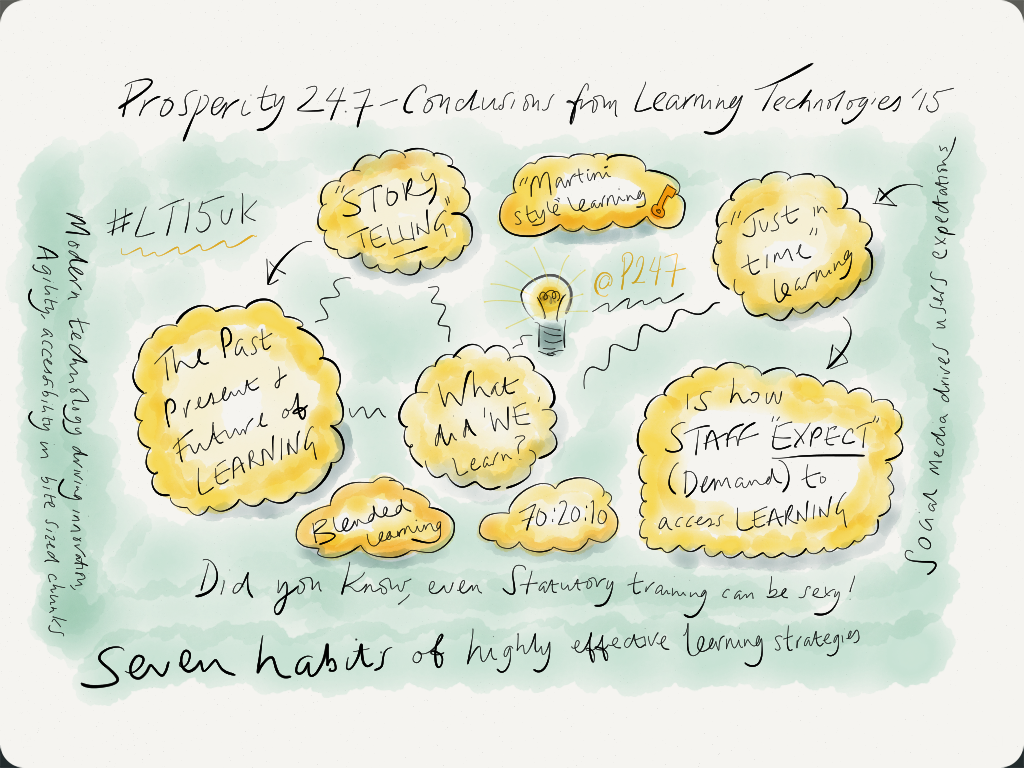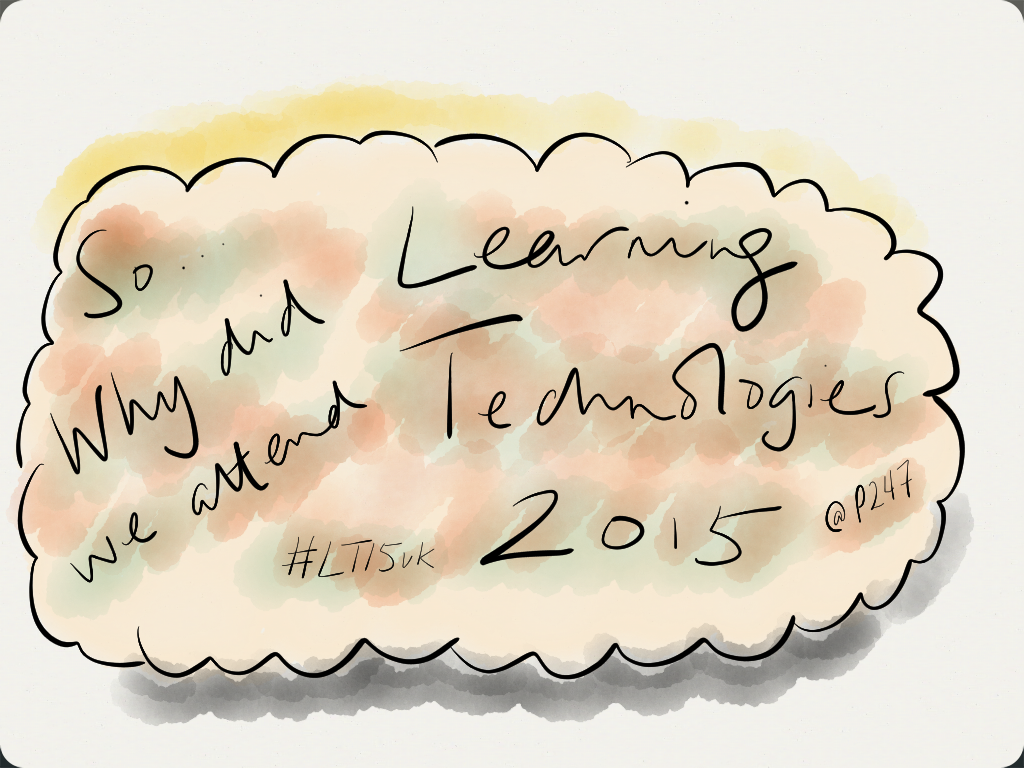The Learning team from Prosperity 24.7 recently attended ‘Learning Technologies 2015’ #LT15uk to ascertain the latest shifts in learning strategies. This has resulted in us sharing ‘Seven habits of highly effective learning strategies’ to ensure that you are delivering the most relevant solutions to your Organisation…
Geraldine Evans, Chief Learning Officer advised “prior to heading to London we interviewed several thought leading HR Directors as well as undertaking wider eSurveys to ascertain the needs of Industry across the Islands. Those that provided feedback and objectives have already had Rose or I outline in person the key elements that we garnered during the sessions, however, we thought our findings would be beneficial to everyone involved in Learning Strategy Development – whether HR, Technology or Executive Leadership – so we came up with ‘Seven habits of highly effective learning strategies’ summarised below”.
‘Seven habits of highly effective learning strategies’ from Prosperity 24.7:
1. Learning is the critical engineer of positive change in the workplace – building lives, changing careers and improving business performance.
2. Blended learning is not just about putting a piece of e-learning on a Learning Management system – It is about analysing the audience and the organisation to create an agile, high impact learning experience through all means suitable: Classroom, Coaching, Mobile learning, e-learning, Social learning then measuring the effect of this learning and making continuous enhancements, evolving the content to keep it relevant and make it work.
3. “Martini” style learning is key to flexible and scalable learning solutions – Learners need to be able to access relevant content at anytime, anywhere and any place. The fourth ‘Martini Principle’ today is that this should also be accessible on ‘any device’.
4. The 70/20/10 rule is a fantastic design method for successful learning outcomes – 70% ‘on the job’ learning, 20% ‘e-learning/mobile learning’ supported with 10% formal classroom learning to re-enforce and supplement the experiential and situational learning.
5. Induction training – the on boarding process should begin once recruited not once a candidate crosses the threshold. Give the employee access to your staff handbook, vision statement and google hangout room / SharePoint workspace to enable them to meet other new recruits. Ensure that an induction process, whether delivering mandatory messages or cultural enlightenment, is adjusted to learners needs and capability. Treat them like intelligent adults, never deliver a “one size fits all” experience – think ‘sheep dipping’ – this must be avoided at all costs if you want to have an engaged and valued workforce from day one. Don’t drown new starters in content!!! Provide a key session followed by incremental frequent ‘nuggets’ over the following four weeks.
6. Learning needs to be at the ‘point of need’ and delivered ‘just in time’ – you need to ensure that your learning environment can accommodate this approach, the Social experience workers have outside the Organisation is driving the assumption in behaviour that the right answer is available just a few clicks away and that it ought to be available just as easily on your intranet.
7. Finally and most importantly ‘Storytelling’ is the most critical skill in business, it is the past, present and future of learning so ensure that you invest in the right tools that can facilitate this critically important delivery method.

The aforementioned ‘seven habits of highly effective learning strategies’ are just our summary of learning. If you would like to learn what else we discovered whilst at the Learning Technologies conference, please do not hesitate to contact either Geraldine Evans or Rose Gray to ensure that we can support and facilitate your ability to #GetSmart2015 or simply call 01534 877247.
During 2015 we will continue our investment in Learning, Development and general knowledge and awareness through our programme of ‘lunch and learn’ seminars. Follow us @P247 on Twitter to ensure that you are up to date and aware when our next session will be held.





